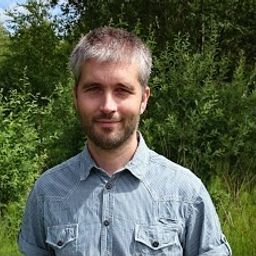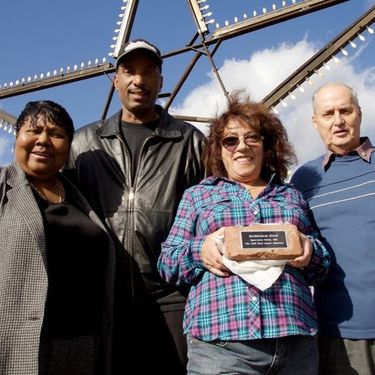
Andreas Antelid
MA and licensed teacher who has managed different project with archaeological methods in a school environment. My academic work has been specialized in discussing postcolonial theories applied on historical and archaeological works as well as analyzing nationalistic tendencies in early 20th century archaeology in Sweden. My most recent work is the article "Whose History - Why Archaeology Matters" in Heritage, Democracy and the Public - Nordic Approaches (2016) where we discuss how archaeology can be used as an including tool in working with cultural heritage and new members in a society. I will be presenting a poster on this subject in the ACHS 2016 conference.
Sessions auxquelles Andreas Antelid participe
Lundi 6 Juin, 2016
Sessions auxquelles Andreas Antelid assiste
Vendredi 3 Juin, 2016
This forum will explore the current directions of critical heritage studies and what makes ACHS distinctive. Panel members will discuss what the term critical means to them, and what directions they would like to see develop in the future. To help develop an open dialogue, the session will also give considerable time to contributions from the audience.
Welcome addresses and cocktail, followed by the Concordia Signature Event "The Garden of the Grey Nuns". As the opening ceremony and cocktail take place in the former Grey Nuns' Motherhouse, recycled into campus residence and reading rooms by Concordia University, delegates will also have the possibility to discover the video Three Grey Nuns (3 minutes, by Ron Rudin and Phil Lichti. Three Grey Nuns recount their memories of communal life in the Grey Nun’s Motherhouse. Built...
Samedi 4 Juin, 2016
What if we changed our views on heritage? And if heritage has already changed? While, on the global scene, states maintain their leading role in the mobilization of social and territorial histories, on the local scale, regions, neighbourhoods and parishes have changed. Citizens and communities too: they latch on to heritage to express an unprecedented range of belongings that no law seems to be able to take measures to contain, often to the discontent of...
Most of what we experience as heritage emerges into conscious recognition through a complex mixture of political and ideological filters, including nationalism. In these processes, through a variety of devices (museums, scholarly research, consumer reproduction, etc.), dualistic classifications articulate a powerful hierarchy of value and significance. In particular, the tangible-intangible pair, given legitimacy by such international bodies as UNESCO, reproduces a selective ordering of cul...
Dimanche 5 Juin, 2016
(In English) Chinatown, born in the second half of the 19th century, is a hub of commercial and sociocultural activities which showcases Chinese culture in Montreal. It has become, over time, an iconic landscape of the city’s cultural diversity. Jonathan Cha, urbanologist, landscape architect and doctor in both space and town planning, proposes a discovery tour allowing us to get acquainted with the history of the district and the decipherment of its landscape. _ Le Quartier chinois, né dans ...
"What does heritage change?" is a multifaceted question to which the answer(s) are in primary respects related to real-life negotiations among different groups of citizens, cultures, races, ethnic groups, sexual identities, and social classes about received, official and/or widely accepted or accomodated intangible attributes, cultural traditions, historic monuments, buildings, and other transmitted or revived historical legacies. Heritage designated by and for whom, for what motivations, an...
Lundi 6 Juin, 2016
There are many different kinds of migrants in the contemporary world. They include the familiar figures of refugees or undocumented migrants, associated with and suffering from exclusionary practices, poverty, silencing or repressions; skilled migrants with economic resources but lacking the tools for cultural and social integration; migrants or second generation migrants returning to their homelands and becoming "strangers" there; people moving to several countries as global nomads, etc. An ...
Le patrimoine fait aujourd’hui l’objet d’attentions autant que d’agressions et de destructions. Cela peut s’expliquer par les difficultés de son identification ou de sa conservation. Cela peut plus profondément s’expliquer parce que, dès le départ, il célébre un événement ou conserve une mémoire qui peut être ou devenir une source de dissenssions et de conflits politiques. Enfin, sa reconnaissance suscite des gains économiques pour les uns mais des pertes pour les autres. Mais peut-être...
Directed by William Shewbridge and Michelle Stefano USA; 35 mins Presented by Michelle Stefano ___ After 125 years of operation, the Sparrows Point Steel Mill (Baltimore, Maryland) finally closed its doors in 2012. The film, “Mill Stories”, examines the importance of the mill from the perspectives of former workers and community members while connecting their story to the larger narrative of industrial boom and bust. The film seeks to amplify the voices of forme...
Mardi 7 Juin, 2016
In exploring the broader question “What does heritage change?” this session presents work that is extending heritage policies and practices beyond elite cultural narratives. Using diverse disciplinary perspectives and drawing from case studies around the world, the presenters explore contexts in which stakeholders’ perspectives and choices have been catalysts for change, democratized knowledge, or exposed gaps in contemporary heritage practices. The case studies reveal complex and often conte...
The closing dinner of the conference, called “Pawâ” according to a French-Canadian tradition borrowed from the Native American lexicon, will be an opportunity to discover, in the heart of the Old Port of Montreal, an original culinary creation by the caterer Agnus Dei, from the renowned Maison Cartier-Besson in Montreal, leader in its field for its boundless creativity and event expertise. The dinner, in the form of stations, will offer delegates an exploration of Quebecois culinary heritage,...











